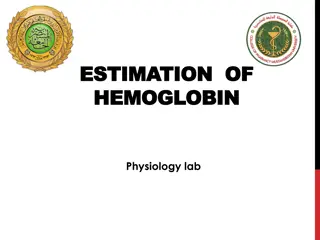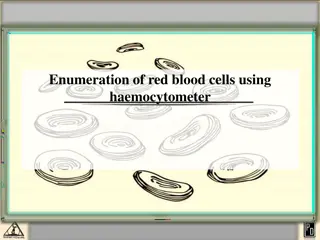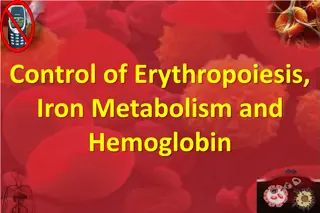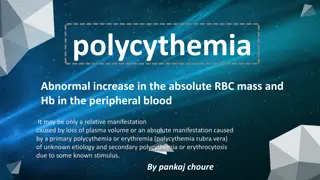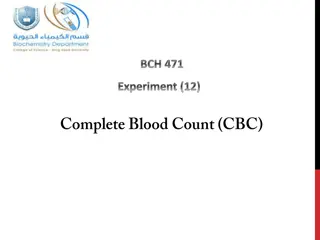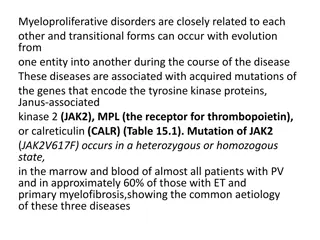
Polycythemia Vera: Symptoms, Causes, and Treatment
Polycythemia vera is a rare form of blood cancer where the bone marrow produces too many red blood cells. Learn about the symptoms, causes, risk factors, complications, and treatment options associated with this condition.
Download Presentation

Please find below an Image/Link to download the presentation.
The content on the website is provided AS IS for your information and personal use only. It may not be sold, licensed, or shared on other websites without obtaining consent from the author. If you encounter any issues during the download, it is possible that the publisher has removed the file from their server.
You are allowed to download the files provided on this website for personal or commercial use, subject to the condition that they are used lawfully. All files are the property of their respective owners.
The content on the website is provided AS IS for your information and personal use only. It may not be sold, licensed, or shared on other websites without obtaining consent from the author.
E N D
Presentation Transcript
StudyMafia.Org Polycythemia Submitted To: Submitted By: Studymafia.org Studymafia.org
Table Contents Definition Introduction Symptoms of Polycythemia Causes of Polycythemia Risk Factors of Polycythemia Complications of Polycythemia Treatment of Polycythemia Conclusion 2
Definition Polycythemia vera (pol-e-sy-THEE-me-uh VEER- uh) is a type of blood cancer. It causes your bone marrow to make too many red blood cells. 3
Introduction These excess cells thicken your blood, slowing its flow, which may cause serious problems, such as blood clots. Polycythemia vera is rare. It usually develops slowly, and you might have it for years without knowing. Often the condition is found during a blood test done for another reason. 4
Causes of Polycythemia Polycythemia vera occurs when a mutation in a gene causes a problem with blood cell production. Normally, your body regulates the number of each of the three Treatment of blood cells you have red blood cells, white blood cells and platelets. 6
Causes of Polycythemia But in polycythemia vera, your bone marrow makes too many of some of these blood cells. The cause of the gene mutation in polycythemia vera is unknown, but it's generally not inherited from your parents. 7
Risk Factors of Polycythemia Polycythemia vera can occur at any age, but it's more common in adults between 50 and 75. Men are more likely to get polycythemia vera, but women tend to get the disease at younger ages. 8
Complications of Polycythemia Blood clots. Increased blood thickness and decreased blood flow, as well as abnormalities in your platelets, raise your risk of blood clots. Blood clots can cause a stroke, a heart attack, or a blockage in an artery in your lungs or a vein deep within a leg muscle or in the abdomen. 9
Complications of Polycythemia Enlarged spleen. Your spleen helps your body fight infection and filter unwanted material, such as old or damaged blood cells. The increased number of blood cells caused by polycythemia vera makes your spleen work harder than normal, which causes it to enlarge. 10
Complications of Polycythemia Problems due to high levels of red blood cells. Too many red blood cells can lead to a number of other complications, including open sores on the inside lining of your stomach, upper small intestine or esophagus (peptic ulcers) and inflammation in your joints (gout). 11
Complications of Polycythemia Other blood disorders. In rare cases, polycythemia vera can lead to other blood diseases, including a progressive disorder in which bone marrow is replaced with scar tissue, a condition in which stem cells don't mature or function properly, or cancer of the blood and bone marrow (acute leukemia). 12
Treatment of Polycythemia There's no cure for polycythemia vera. Treatment focuses on reducing your risk of complications. These treatments may also ease your symptoms. Blood withdrawals The most common treatment for polychythemia vera is having frequent blood withdrawals, using a needle in a vein (phlebotomy). It's the same procedure used for donating blood. 13
Treatment of Polycythemia Treatments to reduce itching If you have bothersome itching, your doctor may prescribe medication, such as antihistamines, or recommend ultraviolet light treatment to relieve your discomfort. Medications that are normally used to treat depression, called selective serotonin reuptake inhibitors (SSRIs), helped relieve itching in clinical trials. 14
Treatment of Polycythemia Drugs that reduce the number of red blood cells If phlebotomy alone doesn't help enough, your doctor may suggest medications that can reduce the number of red blood cells in your bloodstream. Examples include: Hydroxyruea (Droxia, Hydrea) Interferon alfa-2b (Intron A) 15
Treatment of Polycythemia Heart medications Your doctor will also likely prescribe medications to control risk factors for heart and blood vessel disease, including high blood pressure, diabetes and abnormal cholesterol. Your doctor may recommend that you take a low dose of aspirin to reduce your risk of blood clots. 16
Conclusion Polycythemia vera is a type of chronic leukemia (blood cancer) that causes your bone marrow to produce too many red blood cells. It progresses very slowly and often isn t diagnosed until after the age of 60. 17
References Google.com Wikipedia.org Studymafia.org Slidespanda.com
Thanks To StudyMafia.org

